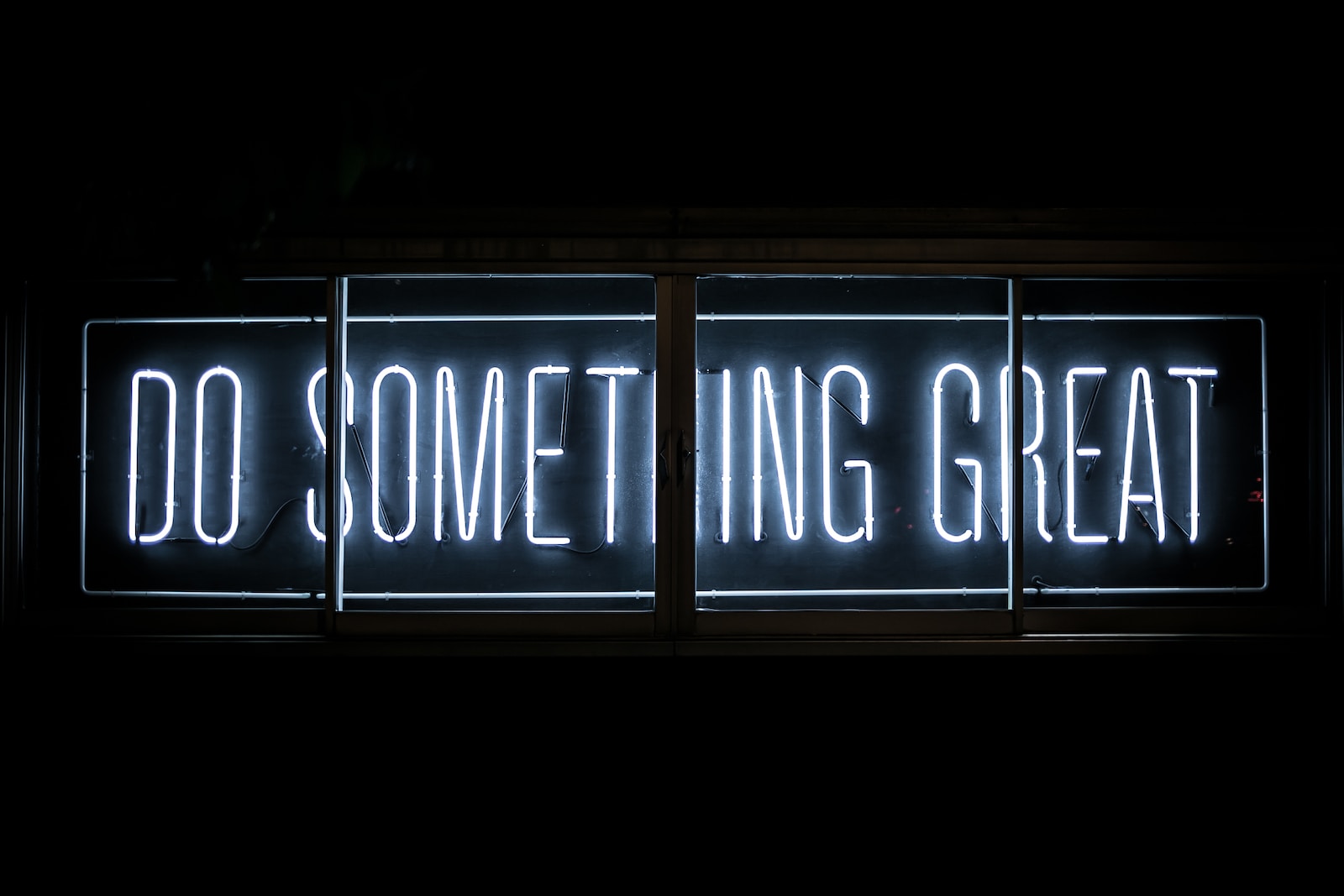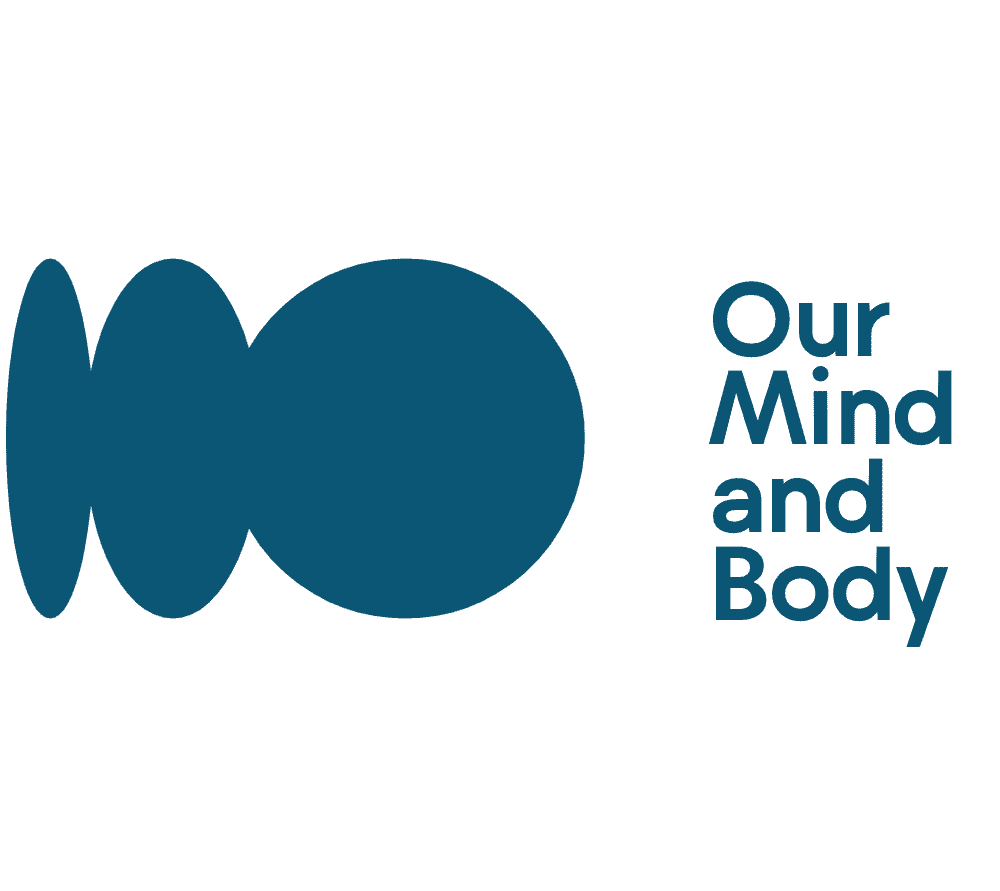Personal Growth
Unlock Your Potential: How Setting Goals and Believing in Yourself Lead to True Achievement

It is never too late to establish goals and work towards achieving them. Everyone has dreams, aspirations, and goals they strive to fulfill in life. However, without a clear plan of action, it can be challenging to attain these objectives. Setting realistic goals provides a concrete target to aim for, which can serve as motivation and inspiration along the way. By dedicating the necessary effort to accomplish these goals, success becomes attainable!
Having goals helps keep us focused and organized so that we don’t lose sight of our end-goal or give up along the way. It also allows us to break down large tasks into smaller pieces and prioritize what needs to be done first. When we make progress towards our desired outcome, it encourages us immensely; fueling even more motivation for continued growth.
The most important part of setting goals is believing in yourself – no matter how lofty they may seem at first glance. Trusting your own capabilities will provide much needed confidence as you strive for greatness. Believing in yourself opens up an entirely new realm of possibilities and sets the stage for true achievement…
Believe In Yourself
Believing in yourself is essential for success, and it’s an important life lesson to learn. Having self-confidence and believing that you can accomplish anything will help you achieve more than you ever imagined! Learning how to trust yourself and boost your own self-esteem are key components of this life lesson.
Finding ways to be confident in who you are and what you do is the best way to start believing in yourself. Start small by writing down a few positive affirmations every day; these don’t have to be grandiose statements – even simple ones like “I am capable” or “I believe in myself” can make a huge difference. Taking time each day to remind yourself of how awesome you are will help build your confidence over time.
When things get tough, try not to give up on yourself too quickly. You may stumble along the way but having faith in your abilities allows you take risks while also giving you the strength needed to overcome any obstacles that come your way. Believing in yourself helps create opportunities for growth and new experiences, so never let fear of failure prevent you from trying something new!
With enough practice and dedication, learning to believe in yourself can open many doors throughout your lifetime. This valuable life lesson should become a part of one’s everyday routine if they want to reach their goals and maximize their potential. Moving forward with this newfound confidence can lead us into the next life lesson: managing our time wisely
Manage Your Time Wisely
Time is a free resource, yet it’s so easily squandered away. Learning to manage time wisely can be one of life’s greatest challenges; however, the rewards are immense. Here are five tips that have helped me on my journey to managing my time more effectively:
- Set daily goals and prioritize tasks by importance – this helps make sure you stay focused on what matters most throughout the day.
- Use a calendar app or planner – keeping track of activities can help ensure nothing slips through the cracks and gets forgotten about.
- Take regular breaks from work – taking short breaks in between tasks will help prevent burnout and give you a mental break from your responsibilities.
- Avoid procrastination – set deadlines for yourself and stick to them! This will also help prevent unnecessary stress when things start piling up at the last minute.
- Learn how to say ‘no’ – understanding your limits is key to being able to manage your time well and not overextending yourself with too many commitments.
It takes discipline and practice to masterfully manage our time but once we do, there will be greater opportunities for us to live fuller lives filled with meaningful experiences. Taking control of our days allows us to appreciate people around us even more due to having ample space created within our schedules.
Appreciate People Around You
Appreciating people around you is one of life’s greatest lessons. It’s easy to get caught up in our own lives and forget that there are other people with their own stories, struggles, and triumphs. Taking the time to recognize and appreciate those we interact with can be a rewarding experience for everyone involved.
We should start by appreciating family members who have been there through thick and thin, providing unconditional love and support throughout life’s journey. Recognizing how much they mean to us can help strengthen relationships as well as provide a sense of comfort when times get tough. Similarly, it’s important to show appreciation for friends who bring joy into our lives, often at no cost or expectation whatsoever. Letting them know how grateful we are for their loyalty and companionship helps create a bond that will last forever.
At work, showing gratitude towards coworkers can also go a long way in bringing teams together while improving morale in the workplace. Acknowledging accomplishments not only boosts self-esteem but also encourages others to continue striving for excellence. Lastly, mentors play an integral role in helping us reach our goals; expressing sincere appreciation for their guidance demonstrates respect which fosters strong mentor/mentee relationships over time.
By taking the time to appreciate those closest to us along with the many individuals who make lasting impacts on our lives, we ultimately become more mindful of our interactions – creating positive effects beyond what we could ever imagine! With this newfound understanding comes greater contentment as we realize that being kind goes further than any material possessions ever could…
Know When To Take Risks
When facing any kind of challenge, it is essential to know when the time is right for taking risks. Risk-taking requires careful risk assessment and evaluation in order to determine whether or not a particular course of action has potential reward that outweighs the danger involved. Risk management also involves identifying all possible risks associated with a certain situation and making sure they are minimized before proceeding.
The key is to be strategic about risk-taking, so that you can maximize your chances of success while minimizing potential pitfalls. This means being aware of your own capabilities and limitations, as well as considering external factors such as timing, resources available, and other people’s perspectives. Taking calculated risks can open up new possibilities and help us achieve our goals more quickly than if we were simply playing it safe.
At the same time, it’s important to remember that life is unpredictable and sometimes things don’t turn out the way we intend them to. The most successful people understand this reality but still have the courage to take risks despite their fear of failure or disappointment. Life will always present opportunities for growth; it’s up to each one of us to decide how far we want to push ourselves towards achieving our dreams. So stay positive and keep moving forward – there may be bumps along the way but with determination, anything is possible!
Stay Positive And Keep Moving Forward
Staying positive and keeping moving forward in life is essential to achieving success. Take the example of John, a diligent student who was determined to make it through college despite his financial struggles. After working day and night for four years, he eventually graduated with honors. His sheer determination kept him motivated throughout his journey.
Having a positive attitude and staying focused on your goals are two key elements of successful living. Achieving objectives requires dedication and hard work but also having faith that things will turn out alright in the end. To stay motivated, you must keep going no matter what obstacles come your way and never give up on yourself or your dreams – this can be difficult at times!
| Positive Attitude | Stay Motivated |
|---|---|
| Believe in yourself | Persevere |
| Surround yourself with positivity | Set small achievable goals |
| Find inspiration from others’ successes | Celebrate your wins |
| Practice gratitude daily | Reflect & learn from mistakes |
| Choose optimism over pessimism | Seek help when needed |
These simple steps can help you maintain an upbeat mindset so that you can continue striving towards success even during challenging times. It’s important to remember that there will always be ups and downs along the path but if you stay positive and remain focused on what matters most, anything is possible! Respect others’ opinions and perspectives by understanding their point-of-view; doing so allows us to grow as individuals and foster stronger relationships with those around us.
Respect Others’ Opinions And Perspectives
Respecting the views, opinions and perspectives of others is a valuable life lesson. It can be difficult to take a step back from our own beliefs and opinions in order to appreciate those who may have different ways of looking at things. Yet, if we intentionally make an effort to listen more, talk less and respect differing ideas, we create an atmosphere where everyone can benefit.
When it comes to respecting the beliefs of others:
- Hear what they have to say without interruption or judgement
- Don’t immediately jump into defending your own position
- Acknowledge that there are often multiple sides to any issue
- Valuing other peoples’ points of view will open up new opportunities for learning.
Taking time out to consider how another person’s opinion could be correct helps build stronger relationships with family, friends and colleagues alike. Being open-minded enough to accept all kinds of opinions does not mean giving up on our values but rather expanding our understanding and growing as individuals. As such, when we show respect for the views of others, even if we don’t always agree, this demonstrates maturity which ultimately leads us toward positive outcomes over time.
It takes courage to admit mistakes or recognize someone else has a better way than ours; however by doing so we become aware that there is greater knowledge available beyond ourselves and our immediate world view. Listening more carefully before forming conclusions allows us to gain insight into various topics making it easier for us to understand why certain people think differently about them. Doing this exercises compassion towards each other – something essential for building strong connections both personally and professionally.
Listen More, Talk Less
Sometimes it feels like the world is full of loudmouths. Everywhere you go, someone seems to be talking nonstop about their latest exploits or opinions on any given topic. But what if we all took a step back and listened more? A healthy balance between listening and talking can lead to greater understanding and connection with others.
When we listen first, we open ourselves up to really hearing another person’s point of view. We learn so much by taking the time to stop our own chatter and absorb in what somebody else has to say. Listening also shows that we respect the other person’s opinion – which helps foster better relationships overall.
By talking less, we are giving ourselves permission to think before speaking – instead of spouting out whatever comes into our head without considering how it may affect those around us. When we take pause, understand where others are coming from, and express ourselves thoughtfully, this leads to meaningful conversations that create real bonds with one another.
It’s not always easy when faced with a barrage of people trying to get their points across at once; however, making a conscious effort to listen more than talk can make a huge difference in how well you connect with those who matter most in your life. With practice, you’ll find yourself able to embrace change for the better – allowing for stronger communication and deeper connections than ever before!
Embrace Change
We all have to embrace change in order to grow and progress. It’s a natural part of life, so learning how to deal with it is essential. When unexpected changes come our way, it can be easy to recoil and feel overwhelmed by them. However, if we take the time to consider what those changes are offering us, we can start to see the opportunities they bring. By consciously changing our perspective on these events, we can open up new possibilities for ourselves.
As well as embracing change itself, it’s important not to shy away from challenges either. Whether it’s taking on a new job or starting something unfamiliar, having courage and being willing to adapt will help us move forward. Every experience brings its own set of lessons which can shape who we become down the line – don’t let fear stop you from getting out there!
Life comes with many obstacles that require us to constantly evolve and make adjustments along the way. Knowing when and how to embrace change is key: remain flexible while keeping your eyes wide open for potential growth opportunities. Learning how to do this will undoubtedly lead you onto bigger and better things than ever before!
Don’T Be Afraid To Ask For Help
It’s like the saying goes, “two heads are better than one”. We can’t expect to know everything or have all the answers. Seeking assistance from other people is an important life lesson that everyone needs to learn. Asking for help doesn’t mean we’re not capable of doing something on our own – it just means that having another person’s perspective and advice can be beneficial in certain situations.
| Where To Get Help | What You’ll Gain From It | Benefits Of Doing So |
|---|---|---|
| Family/Friends | A Different Perspective | Increased Confidence |
| Teachers/Mentors | Guidance & Support | New Knowledge |
| Counselors | Advice | Improved Problem Solving Skills |
Everyone has their own unique set of skills and talents, but sometimes even those aren’t enough when facing a difficult problem or situation. That’s where asking for help comes into play – no matter how big or small the issue may be, getting input from someone else can often provide invaluable insight and guidance. The benefits of seeking support include increased confidence, improved problem solving abilities, new knowledge and more. Whether you turn to family members, teachers, mentors or counselors for help mostly depends on what type of advice you’re looking for and who will be able to best provide it. In short, don’t hesitate to ask for help if needed – it could make all the difference! Nowadays being resourceful requires us to find creative solutions and think outside the box – which is why knowing when and where to seek assistance is so incredibly valuable.
Be Resourceful
It’s true that asking for help is a sign of strength, not weakness. But there are also times when you need to rely on your own resources and be resourceful. After all, it’s important to be independent and self-reliant in life. Here are some tips to help you do just that:
- Identify Resources: Being able to identify what resources are available to you can make a huge difference in how successful or unsuccessful you will be. Take the time to look around at the people, places and things that could help you achieve your goals.
- Use Resources Wisely: Once you have identified your resources, use them wisely by learning about each one thoroughly before deciding if it’s right for you. Don’t waste valuable time or energy going down paths that won’t benefit you in the long run.
- Utilize Resources: It may sound simple but utilizing your resources fully is key! Don’t be afraid to try new things or get creative with potential solutions – often this is where great ideas come from!
- Maximize Resources: Finally, once you’ve identified and utilized your resources, take the extra step and maximize them. Look for ways to leverage existing relationships or build on current knowledge so that every effort has an even greater return on investment.
No matter who we are or what our circumstances may be, having an attitude of being resourceful can truly open up opportunities that might otherwise seem out of reach. With the right mindset and determination, almost anything is possible – so don’t let limited resources stop you from achieving your dreams! By taking full advantage of all the tools available to us we can set ourselves on a path towards success no matter what life throws our way. Now let’s move onto another lesson – don’t sweat the small stuff!
Don’T Sweat The Small Stuff
Sometimes, it feels like the world is spinning out of control with all its little annoyances and details. We can become overwhelmed by trying to keep up with every single small thing that pops up in our lives. But here’s the deal: we don’t have to sweat the small stuff! Life has a way of throwing minor matters at us that aren’t worth expending time or energy on. It’s important to overlook issues and ignore trifles, so we don’t get bogged down in those tiny inconveniences.
The good news is that when you refuse to sweat the small stuff, life becomes much more manageable and enjoyable. You gain clarity because your attention isn’t constantly diverted from what really matters. Focusing on the big picture allows you to make better decisions about how to best spend your valuable time and resources.
When we stop sweating the small stuff, everything seems lighter, brighter, and easier – almost as if you’ve been given a superpower! So next time something insignificant starts weighing you down, just remember this simple truth: Don’t let yourself be dragged into focusing on unnecessary details. Let go of perfectionism and find balance in life instead.
Find Balance In Life
Finding balance in life is essential for living a healthy and fulfilled lifestyle. It’s not just about physical health, but also mental, emotional and spiritual wellbeing. We all have our own unique needs that must be met to achieve the right amount of balance. Work-life balance is important so we can make time for ourselves while still having enough energy devoted to our jobs or businesses. Personal balance means taking care of oneself by engaging in activities like yoga, meditation, exercise and leisure activities such as reading, socializing or watching movies. Mental balance requires being mindful of how much stress one takes on and actively managing it through relaxation techniques and talking with friends or family members when needed.
It’s easy to lose sight of what’s really important when life gets busy, so it’s crucial to find ways to prioritize self-care without neglecting other responsibilities. This could include setting boundaries at work or home to create better limits around your time away from each environment. Additionally, scheduling regular breaks throughout the day can help keep us energized and productive instead of feeling overwhelmed or overworked. Finally, finding joy in everyday moments will remind us why we are striving for success in the first place—to live our best lives! When we take the time to appreciate even small pleasures found during our routines, it can provide an uplifting boost that keeps us motivated and happy overall.
Living mindfully with intention leads us towards greater fulfillment both inside and out; creating equilibrium between personal growth and external demands helps us stay balanced no matter where life takes us.
Show Gratitude Daily
Fulfilling our fondest fantasies requires us to show gratitude daily. The power of expressing thanks and appreciation can boost morale, restore hope, and energize a weary soul. To become the best version of ourselves, we must learn how to acknowledge the blessings in our lives and express sincere thankfulness regularly.
Gratitude is more than just saying “Thank you”; it’s an attitude that helps us recognize all we have been given and creates room for more abundance. We should take time each day to pause and reflect on what we are thankful for – be it family, friends, or even moments of joy that come from unexpected places. Showing gratitude doesn’t cost anything yet yields tremendous rewards. It not only increases positive emotions but also triggers a chain reaction of kindness from others around us.
Being grateful makes us aware of the many gifts life has bestowed upon us which allows us to appreciate every moment with greater clarity. Taking stock of these simple pleasures can help make any situation better by providing perspective when things get tough. When we open our eyes to beauty around us, it immediately brightens up our outlook and fills our hearts with enthusiasm for living this incredible life! Laugh often as we strive to keep expressing genuine gratitude daily – no matter how small – for everything that comes into our lives!
Laugh Often
Laughing is one of the most powerful life lessons that everyone needs to learn. It not only helps us manage stress and stay emotionally healthy, but it can also be incredibly enjoyable! The ability to laugh at yourself is an important part of resilience as we navigate through difficult times in our lives. Laughter releases endorphins that make us feel good, so why not use humor to help lighten a stressful situation? Whether you’re watching comedy or simply giggling with friends, adding some laughter into your day will always reap rewards.
Humor has been shown to improve relationships by creating positive connections between people. When we share funny stories and jokes, we create bonds which bring us closer together. Even if you don’t have much in common with someone else, laughing together creates a bond – even if just for a moment! Furthermore, when we laugh with others they are more likely to like us because they think we’re fun and easy-going. So next time you find yourself in an awkward social situation, try using humor as a way break the ice!
Life can be tough sometimes; however, taking the time to enjoy moments of laughter throughout the day is essential for maintaining emotional balance and well-being. We all experience moments of sadness or stress during our lifetimes; however learning to laugh often allows us to cope better with these situations and gain perspective on them instead of getting overwhelmed. Taking pleasure from everyday activities can help us see things differently and give us renewed energy for tackling whatever comes our way!
Frequently Asked Questions
How Can I Become More Organized With My Time?
As someone who has a million thoughts streaking through their mind at any given moment, I understand how hard it can be to stay organized with your time. From the outside looking in, everybody wants to know my secret for managing it all! Well here’s what I’ve learned from my time-management journey: effective planning and organization skills are key.
First and foremost, you need to prioritize tasks. Instead of trying to accomplish everything on your list at once, focus on one goal at a time. This way you won’t feel overwhelmed or burnt out. With this in mind, scheduling time each day for specific activities will help keep you focused and motivated throughout the week. Here’s a few tips that have helped me become more productive with my days:
- Make a daily plan – Write down exactly what needs to get done during the day and stick to it
- Take breaks – Give yourself short breathers between tasks so that you don’t burn out too quickly
- Set reminders – Use your phone or calendar app so that you remember important things coming up
It’s also helpful to delegate responsibilities when possible. For example, if there is something you don’t enjoy doing then assign it off to somebody else who does. The same goes for taking on too much work; try not overburden yourself by saying ‘no’ every now and then! Last but certainly not least, reward yourself for completing goals as an incentive to continue being productive. Whether it be a home cooked meal or simply taking some personal time, do something nice for yourself after finishing those dreaded duties!
Organizing your schedule doesn’t have to be rocket science; just think smartly about how best use your precious hours in the day and make sure they’re spent wisely!
What Are Some Practical Ways To Take Risks?
Taking risks can be a daunting experience. It requires putting yourself out there, leaving behind the safety of familiar situations and taking a leap into something potentially unknown. But it is also one of the most powerful and rewarding experiences we as humans can have. Taking calculated risks allows us to grow, learn new skills, meet new people and discover what life has to offer.
If you are looking for practical ways to take risks in your own life, risk management is key. Start by making small changes first – such as trying a different route on your way home from work or experimenting with a new hobby. This helps build up confidence so that when bigger opportunities come along you’ll be ready to take them on. Planning ahead will help ensure that any risks taken are manageable and within an acceptable level of risk-taking – which will make each step towards success much easier!
It’s important to remember that risk-taking doesn’t always mean going all-in right away; it’s about finding an equilibrium between playing it safe and pushing your boundaries as far as possible without overstepping. When approaching tasks this way, it becomes easier to find creative solutions and open up possibilities that may not have been considered before. Risk-taking should never become reckless – instead, focus on finding smart and effective ways forward while still staying true to who you are and what matters most to you!
No matter how risky the situation may seem at first glance, careful consideration of the pros and cons can go a long way towards ensuring your risk pays off in the end. With some practice, research and preparation beforehand anyone can reap the rewards of successful risk-taking!
How Can I Develop Better Listening Skills?
Navigating life is a journey. Along the way, it’s important to take time to develop effective listening skills that will help us make better decisions and build meaningful relationships with those around us. Whether we’re engaging in conversations at work or home, honing our ability to listen carefully can serve as an invaluable tool for success. But how do we become better listeners? Here are some tips on improving your listening technique:
The first key step towards becoming a more active listener is being mindful of body language when conversing with others. By maintaining eye contact, keeping open posture and avoiding distractions such as phones and laptops, this shows respect for the person speaking and demonstrates genuine interest in what they’re saying. Additionally, you should be aware of your own nonverbal cues like verbal fillers (such as “um”), fidgeting or crossing arms which could create a barrier between yourself and the speaker.
Another great strategy for actively listening involves seeking clarification when needed by asking thoughtful questions throughout conversation — this helps both parties understand each other better while also boosting engagement levels significantly. Lastly, don’t forget to remain present during conversations; try not to let your mind drift off into unrelated topics so you won’t miss out on any valuable information!
By following these simple yet powerful techniques, you too can learn how to listen effectively and strengthen communication with colleagues and loved ones alike. Listening attentively takes time but if done intentionally and regularly, it will undoubtedly result in improved understanding among all sides of a given situation – which ultimately leads to greater connection and harmony amongst people from all walks of life.
What Should I Do When I Feel Overwhelmed?
When I find myself feeling overwhelmed, it can be incredibly difficult to focus on anything else. It is essential for me to take a step back and assess the situation in order to develop an effective plan of action. I have found that dealing with stress becomes easier when I know what strategies work best for me.
There are many helpful coping strategies available to manage overwhelming feelings. One way is to practice deep breathing exercises or mindfulness meditation which can help reduce stress levels and improve mental health support. Another important strategy is taking small breaks throughout the day; this allows you to recharge and refocus your energy so that you don’t become too overwhelmed. Additionally, managing emotions by writing down thoughts or talking with someone who understands how you feel can provide clarity and guidance during times of difficulty.
Here are 5 ways to cope when feeling overwhelmed:
- Practice Deep Breathing Exercises
- Take Small Breaks Throughout The Day
- Manage Emotions By Writing Down Thoughts
- Talk With Someone Who Understands How You Feel
- Seek Mental Health Support When Necessary
Having awareness of these tactics will not only make it easier for me to deal with my own overwhelm but also helps me better understand others as they navigate their own challenges. Therefore, it’s crucial to recognize when we need extra support and use our resources wisely if we want to effectively handle being overwhelmed.
How Can I Build More Meaningful Relationships?
Building meaningful relationships is one of the most important things we can do in life, yet it’s often something that many people struggle with. We all want to make genuine connections and friendships, but sometimes it feels like an impossible task. It doesn’t have to be this way though; there are plenty of ways to build more meaningful relationships.
When establishing relationships, connecting with people on a deeper level is key. In order for us to form true bonds with others, we need to look beyond surface-level interactions and learn how to open up about our feelings and experiences. As humans, we tend to form stronger attachments when we share intimate details about ourselves; conversations become more interesting and fulfilling when both parties are able to express their thoughts freely without judgement or criticism.
It’s also important to remember that creating strong connections takes time and effort – it won’t happen overnight! Developing relationships requires being patient and understanding – take your time getting acquainted with someone before jumping into deep conversations right away. Additionally, making sure you listen carefully when communicating with those around you will help create a sense of trust between two individuals which could potentially lead to long-term friendship or even romantic involvement if desired.
Relationships come in many forms, so don’t feel discouraged if you’re having trouble finding the right balance between connecting with people while still maintaining healthy boundaries within each relationship. If done correctly, building meaningful relationships can truly enrich our lives by providing companionship and support during difficult times.
Conclusion
In conclusion, life lessons are a valuable tool to have in your arsenal. Learning these lessons can help you become more organized with your time, take risks more effectively, build meaningful relationships, and learn how to better manage feeling overwhelmed. Living by the advice listed above will make it easier for you to live an enriching life and achieve greater personal growth.
It’s important to remember that life is full of obstacles along the way; however, having these ten tips as guidance makes them much easier to overcome. With practice and dedication, you’ll be able to start making positive changes in your life right away. You’ll soon find yourself enjoying each moment without worrying about what could go wrong.
Above all else, it’s essential to stay motivated and never give up on yourself or your goals. Life has its ups and downs but if you keep learning from every experience you encounter, then no matter where you end up – It will always be worth the journey!
Say hello to Cypress, the soulful wordsmith behind the insightful articles at OurMindAndBody.com. Cypress is a gifted writer who weaves words with grace and precision, using language as a powerful tool to inspire, heal, and uplift the spirits of readers.
With a background in literature and a passion for personal growth, Cypress brings a unique perspective to the world of well-being and spirituality. Having experienced the transformative effects of meditation and yoga firsthand, Cypress is deeply connected to the essence of these practices and their potential to enrich lives.
Personal Growth
The Spiritual Significance Of Shooting Stars: Meaning And Symbolism

Have you ever gazed up at the night sky and witnessed a meteor streaking through the darkness? It’s a moment that mesmerizes us and fills us with wonder and awe.
Shooting stars, both scientifically and spiritually, hold a profound significance. Scientifically, they provide valuable insights into the history and composition of our universe.
But beyond the realm of science, shooting stars carry a deeper, more spiritual meaning. In this article, we will explore the spiritual significance of shooting stars, delving into their symbolism and the profound impact they can have on our lives.
Key Takeaways
- Seeing a shooting star spiritually is believed to bring good luck and positive energy
- Many cultures associate shooting stars with messages from the spiritual realm or the universe
- Shooting stars are often interpreted as a sign of new beginnings or endings
- Symbolic meanings of shooting stars include new ideas, wishes, dreams, and spiritual journeys
What are shooting stars?
I’ve learned that shooting stars are natural phenomena caused by debris from space entering the Earth’s atmosphere, and they burn up, creating a bright streak of light across the sky.
It’s fascinating to think about the mythological origins and cultural beliefs surrounding shooting stars. In many cultures, they are seen as messages from the spiritual realm or the universe. Some believe that seeing a shooting star spiritually brings good luck and positive energy, while others associate them with new beginnings or endings.
The symbolic meanings attached to shooting stars can vary widely, depending on individual perspectives and cultural beliefs. For some, they represent wishes, dreams, and spiritual journeys. Others may see them as signs of transformation, growth, or even bad luck.
Regardless of the interpretation, witnessing a shooting star always leaves a lasting impression, igniting a sense of wonder and awe in those fortunate enough to see one.
Scientific explanation
Astronomers study shooting stars using telescopes and instruments to provide a scientific explanation for the phenomenon. Through the exploration of shooting stars, scientific research on shooting stars has revealed fascinating insights into the celestial world. Here are four key findings:
-
Understanding celestial body movement and composition: By studying shooting stars, scientists gain valuable knowledge about how celestial bodies move and their composition. This research helps piece together the history of our Solar System.
-
Insights into the formation of celestial bodies: Analyzing the fallen meteors from shooting stars allows scientists to determine the age and make-up of the Solar System. This information provides valuable insights into the formation of celestial bodies.
-
Unveiling the evolution of the Solar System: Meteor composition analysis sheds light on the evolution of the Solar System. By studying shooting stars, scientists can understand the presence of certain elements in space and gain a deeper understanding of the Solar System’s evolution.
-
Enhancing appreciation for the phenomenon: Understanding the scientific explanation behind shooting stars enhances our appreciation for this awe-inspiring phenomenon. It allows us to marvel at the beauty of shooting stars while also acknowledging the immense knowledge that scientific research has provided.
Regular occurrence
During meteor showers, I love to search for shooting stars in the night sky. It’s a magical experience that fills me with wonder and awe. To make the most out of these celestial events, it’s important to know the meteor shower dates and the best locations for stargazing. Meteor showers happen regularly throughout the year, with the Perseids meteor shower being one of the most well-known, occurring in August. But there are many other meteor showers that take place annually, each with different levels of activity. To increase your chances of seeing shooting stars, find a location away from city lights for better visibility and choose a spot with an unobstructed view of the sky. By being patient and allowing your eyes to adjust to the darkness, you can fully immerse yourself in the beauty of these shooting stars.
Importance of meteor composition analysis
Analyzing the composition of fallen meteors is crucial for understanding the age and make-up of the Solar System. Meteor shower analysis provides valuable insights into the formation of celestial bodies and the evolution of our Solar System.
By studying the chemical composition of these fallen meteors, scientists can unravel the mysteries of our planetary system. It reveals information about the presence of certain elements in space and helps piece together the story of celestial body formation.
This analysis not only enhances our understanding of the Solar System but also deepens our appreciation for the beauty and complexity of the universe. It is through the study of meteor composition that we gain a glimpse into the vastness and wonder of the cosmos, igniting a sense of inspiration and awe within us.
Tips for observing
To enhance your experience of observing shooting stars during meteor showers, it is helpful to find a location away from city lights for better visibility. The best locations for stargazing are usually in remote areas where light pollution is minimal. Choose a spot with an unobstructed view of the sky to maximize your chances of seeing shooting stars.
It’s also important to be patient and allow your eyes to adjust to the darkness. Additionally, if you’re interested in capturing the beauty of shooting stars through photography, there are a few tips to keep in mind. Use a tripod to keep your camera steady, set a wide aperture to let in more light, and use a long exposure to capture the movement of the shooting stars.
With these tips, you can fully immerse yourself in the awe-inspiring experience of witnessing shooting stars during meteor showers.
Positive spiritual beliefs
Experiencing a shooting star fills me with a sense of positivity and brings a feeling of good luck and possibility. It’s as if the universe is sending a message of encouragement and reminding me of the infinite potential within myself.
When I see a shooting star, I take a moment to reflect and express gratitude for the blessings in my life. I then set positive intentions for the future and visualize my dreams and desires manifesting into reality. This act of manifestation is a powerful spiritual practice that helps me stay focused on my goals and allows me to attract the positive energy needed to achieve them.
It’s a reminder that I have the power to create my own destiny and that the universe is conspiring in my favor. So, the next time you witness a shooting star, take a moment to embrace its positive energy and utilize it as a catalyst for your own personal growth and transformation.
Negative spiritual beliefs
When I witness a shooting star, it fills me with a sense of unease and foreboding, as if it is a sign of impending doom or misfortune. In many cultures, shooting stars are associated with negative meanings and superstitions. Some believe that seeing a shooting star is a symbol of death or a bad omen. These beliefs stem from ancient superstitions and cultural interpretations passed down through generations. The idea of a shooting star representing the end of something or a warning of impending tragedy can be deeply ingrained in our subconscious. This negative symbolism attached to shooting stars serves as a reminder to cherish the present moment and appreciate the blessings in our lives. It encourages us to reflect on our actions and make positive changes to avoid any potential negative outcomes.
| Negative Symbolism | Superstitions about Shooting Stars |
|---|---|
| Death | A sign of impending tragedy |
| Misfortune | Bad luck associated with shooting stars |
| Omen | A warning of negative events |
| Impending doom | A sense of foreboding and unease |
Reflection and gratitude
After witnessing a shooting star spiritually, it is natural to be filled with a sense of wonder and awe. The beauty and fleeting nature of these celestial phenomena leave a lasting impression on our hearts and minds.
As I reflect on the spiritual significance of shooting stars, I am reminded of the importance of gratitude in our lives. Taking a moment to pause and appreciate the magic that unfolds before us can be a powerful spiritual practice. It allows us to connect with the universe and acknowledge the infinite possibilities that exist.
Expressing gratitude for the opportunity to witness such a breathtaking sight opens our hearts and minds to the abundance of blessings that surround us. In these moments of reflection and gratitude, we align ourselves with the positive energy of the universe, inviting more miracles and blessings into our lives.
Cultural interpretations
Cultural interpretations of shooting stars vary widely, with different belief systems attributing various messages and events to their appearance. Throughout history, these celestial phenomena have held immense cultural significance, captivating the imaginations of people from all walks of life.
Here are a few examples of how different cultures have interpreted the spiritual meaning of shooting stars:
-
In ancient Greek mythology, shooting stars were seen as a sign of divine favor or displeasure. They were believed to be the souls of deceased loved ones, guiding and protecting those who witnessed them.
-
Native American tribes viewed shooting stars as communication from the spirit world. They believed that these celestial visitors brought messages from ancestors or spirit guides, offering guidance and wisdom.
-
In Chinese culture, shooting stars are associated with luck and prosperity. It is believed that making a wish upon a shooting star can bring good fortune and help manifest one’s desires.
-
In Hinduism, shooting stars are seen as a symbol of transformation and the cycle of life. They represent the journey of the soul and the potential for spiritual growth and enlightenment.
These cultural interpretations highlight the deep-rooted historical significance of shooting stars and the diverse ways in which they have been understood and revered. They remind us of the interconnectedness of humanity and the universal human desire to find meaning in the natural world.
Symbolic representations
As I delve deeper into the spiritual significance of shooting stars, I can’t help but marvel at the myriad of symbolic representations attached to these celestial wonders.
Beyond cultural interpretations, shooting stars hold a profound connection to astrology and spiritual rituals. They are seen as celestial messengers, carrying messages from the universe to guide us on our spiritual paths.
Many spiritual rituals involve making wishes or setting intentions when a shooting star streaks across the night sky, believing that these desires will manifest into reality. The fleeting nature of shooting stars reminds us to cherish the present moment and seize opportunities for growth and transformation.
They ignite a sense of wonder and awe, inspiring us to pursue our dreams and aspirations. In this vast universe, shooting stars serve as spiritual beacons, reminding us of the infinite possibilities that await us on our journey.
Inspiration and motivation
Experiencing a shooting star ignites a deep sense of inspiration and motivation within me. It reminds me of the infinite possibilities that exist in the universe and the power of our dreams and aspirations. When I gaze upon a shooting star, I am reminded of the importance of finding purpose and pursuing our true passions in life. It serves as a gentle nudge from the universe, encouraging me to take action and follow my heart’s desires. The shooting star represents the fleeting nature of life and the importance of seizing every moment. It reminds me to never give up on my dreams, no matter how big or small they may be. Witnessing a shooting star fills me with a sense of wonder and awe, and it reinforces my belief in the beauty and magic of the world around us.
| Finding Purpose | Pursuing Dreams |
|---|---|
| – Shooting stars remind us of the importance of finding our purpose in life. | – They inspire us to pursue our dreams and aspirations. |
| – They serve as gentle reminders to follow our hearts and do what truly makes us happy. | – Shooting stars symbolize the infinite possibilities that exist in the universe. |
| – The fleeting nature of shooting stars reminds us to seize every moment and make the most of our lives. | – They encourage us to take action and not be afraid to chase after our dreams. |
| – Witnessing a shooting star sparks a sense of motivation and reminds us of the beauty and magic of the world. | – They reinforce our belief that anything is possible if we have the courage to pursue it. |
Magical and enchanting experience
The sight of a shooting star creates a mesmerizing and enchanting moment that captivates my senses. As I gaze at the night sky, a shooting star streaks across the darkness, leaving behind a trail of shimmering light.
In that fleeting instant, I feel a deep sense of connection with the universe, as if the vast expanse of space is reaching out to touch my soul. It is a reminder of the infinite possibilities that exist in the universe and within myself.
The magical nature of shooting stars ignites a spark within me, awakening my spirit and inspiring me to embrace my own journey of self-discovery. In that brief encounter with the shooting star, I am reminded to stay true to my path, to follow my dreams, and to trust in the power of the universe to guide me towards my highest purpose.
Frequently Asked Questions
Are shooting stars actually stars?
No, shooting stars are not actually stars. They are debris from space, such as meteoroids, that enter the Earth’s atmosphere and burn up, creating a bright streak of light across the sky.
Can shooting stars grant wishes?
Shooting stars have captivated human imagination for centuries, with magical folklore suggesting they can grant wishes. While scientific explanations reveal their true nature, the idea of wishes coming true adds a sense of wonder and hope to the experience.
What do shooting stars symbolize in different cultures?
Cultural interpretations of shooting stars vary widely, reflecting the diverse beliefs and historical significance of different cultures. They can symbolize new beginnings, messages from the spiritual realm, hope, and inspiration, among other concepts.
Are there any negative beliefs associated with shooting stars?
Witnessing a shooting star can be a breathtaking experience, but there are some negative beliefs associated with them. Some cultures view shooting stars as omens of death or bad luck, which can have a disheartening effect on those who witness them.
How can witnessing a shooting star impact someone’s spiritual journey?
Witnessing a shooting star can have a profound impact on my spiritual journey. It reminds me of the vastness of the universe and my connection to it. It inspires personal growth, ignites a sense of wonder, and encourages me to pursue my dreams.
Conclusion
As I gaze up at the night sky, witnessing the fleeting beauty of a shooting star, I am reminded of the profound spiritual significance that these celestial wonders hold. They are more than just natural phenomena; they are messengers from the universe, igniting a sense of wonder and hope within our souls.
Like the shooting star that streaks across the darkness, we too have the power to leave a lasting impression and inspire others with our dreams and aspirations. Just as the shooting star lights up the night sky, let us illuminate our own paths and embrace the magic and enchantment of life’s journey.
Say hello to Cypress, the soulful wordsmith behind the insightful articles at OurMindAndBody.com. Cypress is a gifted writer who weaves words with grace and precision, using language as a powerful tool to inspire, heal, and uplift the spirits of readers.
With a background in literature and a passion for personal growth, Cypress brings a unique perspective to the world of well-being and spirituality. Having experienced the transformative effects of meditation and yoga firsthand, Cypress is deeply connected to the essence of these practices and their potential to enrich lives.
Personal Growth
The Spiritual Significance Of The Name James

Did you know that the name James has deep spiritual significance? Coming from Hebrew, meaning ‘supplanter’ or ‘holder of the heel,’ the name James represents persistence, courage, and the skill to overcome obstacles.
Numerologically, it carries a value of 11, symbolizing leadership and spiritual enlightenment. Astrologically aligned with Mars, it embodies courage and assertiveness. The symbolic significance of its letters further reveals optimism, sensitivity, and intuition.
Additionally, James is associated with reliability, loyalty, and leadership, offering protection and guidance in various cultures.
Join me as we explore the profound spiritual meaning of the name James.
Key Takeaways
- The name James has a spiritual meaning of persistence, courage, and overcoming obstacles.
- Numerologically, the name James has a value of 11, indicating leadership qualities and spiritual enlightenment.
- Astrologically, the name James corresponds with the planet Mars, symbolizing courage and assertiveness.
- The letters in the name James, such as J and S, hold symbolic significance, representing optimism, excitement, sensitivity, and intuition.
Origin and Meaning
The origin and meaning of the name James is quite fascinating. It is derived from the Hebrew name Yaakov, which means supplanter or holder of the heel.
In a spiritual context, the name James represents someone who is persistent, courageous, and willing to overcome obstacles.
This name holds great significance in numerology and astrology as well. Numerologically, James has a numerical value of 11, indicating leadership qualities and spiritual enlightenment. Astrologically, the name corresponds with the planet Mars, signifying courage and assertiveness.
The symbolic significance of the letters in James adds depth to its meaning. The J represents optimism and excitement for life, while the S signifies sensitivity and intuition.
Overall, the name James carries a powerful spiritual meaning. It reflects qualities of strength, determination, and the ability to rise above challenges.
Numerological Symbolism
Numerology unveils the captivating power behind the numeric value of my name, as the number 11 ignites a blazing trail of leadership and spiritual enlightenment. This numerical value signifies my innate ability to lead and inspire others, as well as my deep connection to the spiritual realm.
I am driven by a strong sense of purpose and a desire to make a positive impact on the world. The number 11 also represents spiritual enlightenment, indicating that I am constantly seeking higher truths and wisdom.
It is through my leadership qualities and dedication to spiritual growth that I am able to navigate the challenges and obstacles that come my way. Numerology allows me to understand and embrace the profound significance of my name, James, as it illuminates the path of my life journey.
Astrological Associations
Astrologically speaking, Mars represents my courage and assertiveness, providing me with the strength to face challenges head-on. In numerology, the name James corresponds with the numerical value of 11, indicating my leadership qualities and spiritual enlightenment.
This celestial connection allows me to tap into my innate sense of determination and fearlessness. As a result, I am able to navigate through life’s obstacles with unwavering resolve.
The position of each letter in my name holds symbolic significance as well. The J signifies my optimism and excitement for life, while the S represents my sensitivity and intuition. These qualities, combined with the influence of Mars, shape my life journey and contribute to my character.
The name James, with its spiritual meaning of persistence and courage, serves as a constant reminder of my ability to overcome any challenge that comes my way.
Symbolic Significance of Letters
In understanding the symbolic significance of letters in my name, I find that the J represents my optimism and excitement for life, while the S signifies my sensitivity and intuition.
The letter J is associated with the planet Jupiter, which symbolizes expansion and growth. This resonates with my personality as I always strive for personal and spiritual development.
The S, on the other hand, correlates with the moon, representing emotions and intuition. I am highly empathetic and intuitive, often relying on my instincts to guide me in making decisions.
Understanding these symbolic meanings of the letters in my name gives me a deeper insight into my life journey and the qualities that define me. It allows me to embrace and cultivate these qualities, leading to a more fulfilling and purposeful existence.
Biblical References
When exploring the biblical references associated with my name, I feel a deep connection to the stories of James the son of Zebedee and James the son of Alphaeus, as they exemplify the strength and resilience required to navigate life’s challenges.
James the son of Zebedee was one of the twelve apostles chosen by Jesus, and he played a significant role in spreading the teachings of Christianity. He was known for his unwavering faith and commitment, even in the face of persecution and adversity.
James the son of Alphaeus, also known as James the Less, was another disciple of Jesus and was known for his humility and dedication to serving others.
Both Jameses serve as powerful examples of how faith and determination can guide us through difficult times and inspire us to lead lives of purpose and devotion.
Famous Namesakes
One of the most well-known individuals who shares my name is the actor James Franco. He is a versatile and talented actor who has appeared in numerous films and television shows.
-
First, imagine being on the set of a blockbuster film with James Franco. The cameras are rolling, and he effortlessly embodies his character, captivating the audience with his powerful presence and emotional range.
-
Next, picture attending a prestigious awards ceremony alongside James Franco. He gracefully walks the red carpet, exuding confidence and style. As he accepts his well-deserved award, his charismatic smile lights up the room.
-
Finally, envision sitting in a theater, watching a play directed by James Franco. His creative vision and attention to detail shine through, transporting the audience into a world of art and imagination.
These scenarios illustrate the impact and influence that someone with the name James can have in the entertainment industry, showcasing their talent, dedication, and ability to captivate audiences.
Cultural Beliefs and Traditions
Growing up in a close-knit Italian-American community, I vividly remember the annual Feast of Saint James celebration, where families would come together to honor their patron saint with a lively parade, delicious food, and traditional music and dancing. This cultural belief and tradition held a significant spiritual meaning for us, as Saint James was believed to offer protection and guidance. The celebration allowed us to connect with our faith and heritage, and it served as a reminder of the values associated with the name James, such as reliability, loyalty, and leadership.
To paint a picture of the Feast of Saint James, here is a table showcasing some of the elements that made this celebration so special:
| Feast of Saint James Celebration | |
|---|---|
| Lively Parade | Delicious Food |
| Traditional Music | Dancing |
| Community Gathering | Honoring Patron Saint |
This annual event not only brought our community together but also reinforced the spiritual significance of the name James in our lives.
Nicknames and Variations
I’ve always loved the various nicknames and variations of my name, James. It is fascinating to see how this name can be transformed and adapted in different cultures and contexts.
In English-speaking countries, common nicknames for James include Jim, Jimmy, and Jamie. These variations add a sense of familiarity and informality to the name, making it more approachable.
In other cultures, there are different variations of the name James that carry their own unique meanings and connotations. For example, in Spanish, the name Santiago is a common variation of James, which means ‘Saint James.’ This variation emphasizes the spiritual and religious significance of the name.
Overall, the nicknames and variations of the name James showcase the versatility and adaptability of this timeless name.
Frequently Asked Questions
Is there a specific spiritual ritual or ceremony associated with the name James?
There is no specific spiritual ritual or ceremony associated with the name James. The spiritual significance of the name lies in its meaning and symbolism, representing qualities such as persistence, courage, and overcoming obstacles.
Are there any specific gemstones or crystals that are believed to enhance the spiritual energy of the name James?
Oh, the wonders of gemstones and crystals! When it comes to enhancing the spiritual energy of the name James, I’m afraid there isn’t a specific gem associated with it. But fear not, for the power lies within the name itself.
Does the spiritual significance of the name James change depending on the person’s astrological sign?
The spiritual significance of the name James does not change depending on a person’s astrological sign. The name James represents persistence, courage, and overcoming obstacles in a spiritual context, regardless of astrological influences.
Are there any specific prayers or mantras that are often associated with the name James?
There are no specific prayers or mantras exclusively associated with the name James. However, individuals named James can choose to use any prayer or mantra that resonates with their personal beliefs and spiritual practices.
Are there any specific spiritual practices or traditions that individuals with the name James are encouraged to follow?
As an individual with the name James, there are no specific spiritual practices or traditions that I am encouraged to follow. However, the name James symbolizes persistence, courage, and a willingness to overcome obstacles, which can guide my spiritual journey.
Conclusion
In conclusion, the name James holds immense spiritual significance.
Its Hebrew origin, Yaakov, signifies perseverance and the ability to overcome obstacles.
Numerologically, the value of 11 represents leadership and spiritual enlightenment.
Astrologically, Mars symbolizes courage and assertiveness, attributes associated with the name James.
The letters in the name also contribute to its symbolic significance, with J representing optimism and S signifying sensitivity and intuition.
The biblical references and cultural beliefs further enhance the name’s spiritual meaning.
Overall, the name James is a powerful symbol of perseverance, courage, and triumph in the face of challenges, making it truly remarkable.
Say hello to Cypress, the soulful wordsmith behind the insightful articles at OurMindAndBody.com. Cypress is a gifted writer who weaves words with grace and precision, using language as a powerful tool to inspire, heal, and uplift the spirits of readers.
With a background in literature and a passion for personal growth, Cypress brings a unique perspective to the world of well-being and spirituality. Having experienced the transformative effects of meditation and yoga firsthand, Cypress is deeply connected to the essence of these practices and their potential to enrich lives.
Personal Growth
The Spiritual Significance Of Black Candle Jars: Unlocking Symbolism And Personal Transformation

Step into the mystical world of black candle jars, where the soft illumination not only brightens a room but also touches the depths of your soul. These jars serve as a mystical tool, unlocking pathways to change, cleansing, and safeguarding.
They are more than mere objects; they are gateways to personal growth and spiritual connection. As we delve into the symbolism behind black candle jars, we embark on a journey of self-discovery, where shadows are embraced, negativity is released, and transformation becomes our guiding light.
Key Takeaways
- Black candle jars are associated with purification, protection, and banishing negative energy in one’s personal spiritual journey.
- The causes of black candle jars can vary, including the quality of wax, low-quality wick, improper burning techniques, and the impact of candle colors.
- Understanding the spiritual meaning and reasons for candle blackening is important for interpreting the symbolism behind black candle jars.
- Candle colors have specific meanings and associations, and selecting the appropriate color can enhance the desired outcome in spiritual practices.
What is it?
I know that black candle jars have a spiritual significance and can unlock symbolism and promote personal transformation.
Understanding symbolism is like peering into the depths of our souls, searching for hidden truths and untapped potential.
Just as the black candle jar holds the flickering flame, it also holds the power to ignite our inner fire. It symbolizes spiritual purification, a cleansing of the soul, and a release of negative energy.
When we embrace the black candle jar in our rituals, we invite protection and banish the darkness that may cloud our minds.
It is through this act of lighting the black candle jar that we embark on a journey of self-discovery and transformation. As the flame dances and casts its mesmerizing glow, we are reminded of the power within us to illuminate our path and create our own destiny.
Causes and Prevention
Understanding the causes of blackening in candle jars and implementing proper burning techniques can help prevent this issue. Prevention is key when it comes to maintaining the quality of our candles and maximizing their spiritual significance.
Just as in life, we must be mindful of our actions and choices to avoid negative outcomes. By taking the time to select high-quality wax and wicks, we can ensure a clean and pure burning experience. It is essential to pay attention to the fragrance oils we use, as excessive usage can contribute to blackening.
Furthermore, mastering proper burning techniques, such as trimming the wick and allowing the candle to burn evenly, will enhance the longevity of our candles and prevent blackening.
Let us strive to improve the quality of our candles, allowing their vibrant light to illuminate our spiritual journey.
Interpreting Meaning
Exploring the different interpretations of the meaning behind blackened candle jars enhances my understanding of their role in my spiritual journey. As I delve deeper into the symbolism associated with these jars, I uncover new layers of meaning and insight. Each blackened jar represents a transformation, a purification of the soul, and a shield against negativity. It serves as a visual reminder of the power I hold to banish darkness and embrace the light within.
To aid in my exploration, I have created a table that captures the essence of the spiritual growth that can be achieved through the interpretation of black candle jars:
| Symbolism | Spiritual Growth | Interpretation |
|---|---|---|
| Transformation | Embracing change | Letting go of old patterns and beliefs to make space for personal growth and evolution. |
| Purification | Releasing negativity | Cleansing the spirit of negative energy and fostering a sense of inner peace. |
| Protection | Shielding from harm | Creating a spiritual barrier to safeguard against external influences and negative forces. |
By understanding the diverse interpretations of black candle jars, I am able to harness their power and incorporate them into my daily rituals for spiritual growth. They serve as a constant reminder of the transformative journey I am on and the importance of embracing the symbolism they hold.
Candle Colors and Meanings
Selecting the appropriate color of a candle allows for a deeper connection to desired outcomes and enhances the effectiveness of spiritual practices. Candle colors hold significant meanings and can be used to amplify intentions in our daily rituals.
Combining candle colors is like blending different hues on a canvas, creating a masterpiece of energy and intention. Just as an artist combines shades to evoke specific emotions, we can combine candle colors to enhance our intended outcomes.
For example, combining a black candle, symbolizing protection and banishing negativity, with a white candle, symbolizing purity and clarity, can create a powerful synergy in our spiritual journey.
It is through this intentional blending of colors that we find ourselves truly immersed in the transformative power of black candle jars, unlocking their symbolism and experiencing personal transformation.
Impact on Spiritual Journey
Experiencing the impact of black candle jars on my spiritual journey has been profound and transformative.
Exploring the symbolism behind these jars, I have discovered a powerful tool for harnessing transformation in my life. Like the darkness that precedes the dawn, the black candle jars represent the necessary journey into our own shadows and depths.
As the candle burns, it purifies, banishing negative energy and paving the way for personal growth. Just as the black candle jars release their black residue, I too release the negativity and limitations that no longer serve me.
Through this process, I am able to ground myself, finding stability and strength amidst the chaos of life. The black candle jars symbolize the journey of transformation, reminding me that from darkness comes light, and from ashes rises the phoenix.
During my spiritual journey, I have found that incorporating black candle jars has had a profound impact on my growth and transformation. Exploring the symbolism behind these jars has allowed me to delve deeper into my inner world, unlocking hidden aspects of myself and embracing transformation.
The black candle jars serve as powerful tools, symbolizing the journey of purification and protection. They act as a mirror, reflecting the shadows within, urging me to release negativity and embrace the light. As I light the candle and watch the black residue slowly melt away, I am reminded of the power of transformation and the constant shedding of the old to make way for the new.
Embracing the spiritual significance of black candle jars has allowed me to align my beliefs and values, grounding me in my journey towards self-discovery and personal growth. With each candle ritual, I am reminded of the power of intention and the importance of focus.
These black candle jars have become a constant companion, enhancing my spiritual connection and deepening my understanding of myself and the world around me.
Incorporating black candle jars into my daily rituals has deepened my spiritual connection and heightened my understanding of myself and the world around me.
Exploring the symbolism behind these jars has allowed me to embrace personal transformation in a profound way. The black residue left behind after burning a candle represents the release of negativity and the purification of my spirit. It is a reminder that through shadow work and grounding, I am able to banish negative energy and protect myself from its influence.
Each time I light my black candle jar, I am reminded of the transformative power within me and the importance of releasing what no longer serves me. It is a symbol of strength and resilience, guiding me on my spiritual journey towards growth and enlightenment.
By embracing the spiritual significance of black candle jars, I have unlocked a deeper understanding of myself and the world, allowing me to walk the path of personal transformation with intention and purpose.
Using black candle jars in my daily rituals has greatly deepened my connection to the spiritual realm and enhanced my personal growth journey. Exploring the symbolism behind these jars has allowed me to tap into a deeper understanding of myself and the world around me.
Each time I light a black candle, I am reminded of the power of intention and the importance of focus in my spiritual practices. The black residue left behind after burning represents the transformation and purification that takes place within me. It is a visual reminder of the negative energy and emotions that I release, allowing space for positivity and light to enter.
Through my connection with these rituals, I have found a sense of grounding and protection, enabling me to navigate life’s challenges with grace and resilience.
Frequently Asked Questions
Are there any specific rituals or practices associated with using black candle jars in spiritual journeys?
Exploring the symbolism of black candle jars in different spiritual practices, I’ve discovered rituals that enhance personal transformation. Through my own experiences, I’ve witnessed the power of intention and the profound impact of using black candle jars on my spiritual journey.
Can black candle jars be used for manifesting positive outcomes, or are they primarily used for banishing negativity?
Black candle jars have a transformative power beyond banishing negativity. By harnessing the power of intention, they can manifest positivity and guide us on a journey of personal growth and spiritual enlightenment.
How can one determine the quality of wax and wick when purchasing black candle jars?
When purchasing black candle jars, I focus on determining the quality of wax by looking for a smooth texture and clean burn. I also check the wick quality by ensuring it is sturdy and centered for an optimal candle-burning experience.
Are there any specific candle burning techniques or care instructions that can help prevent blackening of the jar?
To prevent blackening of the jar, I’ve discovered some candle cleaning techniques that are truly magical. By regularly trimming the wick, avoiding drafts, and cleaning with vinegar, I keep my candles shining bright, preventing soot buildup.
Can the spiritual meaning of black candle jars vary across different cultures or belief systems?
Cultural variations and belief system influences can shape the spiritual meaning of black candle jars. Like diverse colors blending on a canvas, our interpretations intertwine, creating a tapestry of symbolism that reflects our unique spiritual journeys.
Conclusion
As I reflect on the profound journey of the black candle jar, I am reminded of the power it holds to transform our beings.
Like a guiding light in the darkness, this sacred vessel purifies our souls, banishing negativity and protecting our spirits.
Its symbolism is a gateway to personal growth, a path towards understanding and connection.
With each flicker of its flame, we embark on a spiritual quest, embracing the colors that represent our intentions.
Let us unlock the secrets of the black candle jar and ignite the fire of transformation within ourselves.
Say hello to Cypress, the soulful wordsmith behind the insightful articles at OurMindAndBody.com. Cypress is a gifted writer who weaves words with grace and precision, using language as a powerful tool to inspire, heal, and uplift the spirits of readers.
With a background in literature and a passion for personal growth, Cypress brings a unique perspective to the world of well-being and spirituality. Having experienced the transformative effects of meditation and yoga firsthand, Cypress is deeply connected to the essence of these practices and their potential to enrich lives.
-

 Personal Growth2 months ago
Personal Growth2 months agoThe Power Of Kindness: Cultivating Happiness, Connection, And Personal Growth
-

 Meditation1 day ago
Meditation1 day agoUnderstanding Spiritual Attacks: Types, Signs, And Protection
-

 Aura1 week ago
Aura1 week agoUnderstanding The Grey Aura: Balance, Neutrality, And Personal Growth
-

 Spirituality3 months ago
Spirituality3 months agoThe Power Of Spiritual Connection: Definition, Importance, And Ways To Achieve
-

 Spirituality2 months ago
Spirituality2 months agoStarting Your Spiritual Journey: Self-Reflection, Growth, And Connection
-

 Spirituality3 months ago
Spirituality3 months agoConnecting Spirituality And Daily Life: Embracing Universal Values
-

 Spirituality3 months ago
Spirituality3 months agoThe Mystical Realms: Exploring Spiritual Dimensions
-

 Meditation3 weeks ago
Meditation3 weeks agoThe Symbolic Significance Of Sand Dollar: Spiritual Meanings And Cultural Connections
















